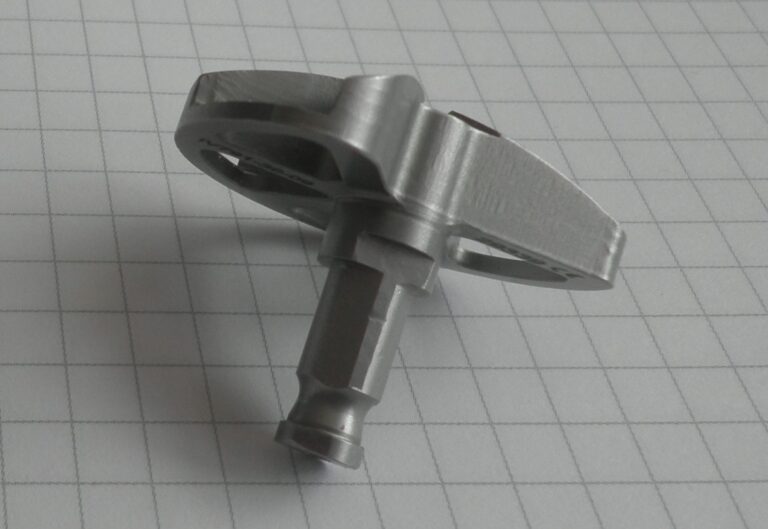Result description
Metal Injection Molding (MIM) allows to produce large series of complex metallic parts, but it requires a costly phase of mold development. Moreover, MIM scraps, such as sprue, are generally considered as wastes. Several innovations have been implemented such as the use of a resin mold, a redution in debinding time, stable mechanical performances when using MIM scraps or used L-PBF powder in feedstock. Medical tools produced by MIM were succesfully tested.
CEA demonstrated than the design and use of resin molds instead of metallic molds is very efficient to gain time and reduce costs during this initial phase. Thanks to a new feedstock formulation, the debinding time was reduced by 6%. Moreover, CEA proved that tensile properties of 17-4PH stainles steel parts are in agreement with MIM standard and remain stable when MIM scraps are re-used in the feedstock. It was also demonstrated that a used Laser Powder Bed Fusion (LPBF) powder sived below 30µm can be introduced in the feedstock without any degradation of the mechanical properties. Several prototypes of a 17-4PH medical tool were produced and their cutting capacity on synthetic bones was tested successfully. Both tensile and fatigue tests showed encouraging results that could be improved by further developments. For example, one part completed 200.000 cycles torsional fatigue test without failure.
Addressing target audiences and expressing needs
- Grants and Subsidies
Industrial partners interested to benchmark MIM process vesus machining process
- Public or private funding institutions
R&D, Technology and Innovation aspects
- 97% reduction in CO2 emissions by using MIM compared to machining for medical tool fabrication.
- 97% reduction in Energy consumption by using MIM compared to machining for medical tool fabrication
- 100% reduction in material usage by using MIM compared to machining for medical tool fabrication
- 7% increase in Production rate by using MIM compared to machining for medical tool fabrication
Re-use of LPBF powder and MIM scraps in MIM feedstock, as well as replacing substractive processes by additive ones, allows to reduce the environmental impact of manufacturing processes.
- Global
Result submitted to Horizon Results Platform by COMMISSARIAT A L ENERGIE ATOMIQUE ET AUX ENERGIES ALTERNATIVES

